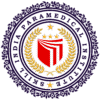Diploma in Central Sterile Service Department (CSSD) Course – Syllabus Outline
The Diploma in Central Sterile Service Department (CSSD) is designed to provide comprehensive knowledge and hands-on training in the field of sterilization and healthcare supply management. The syllabus focuses on the theoretical aspects of sterilization techniques, infection control, supply chain management, and the practical application of these processes in a healthcare setting.Below is a typical syllabus pattern for the Diploma in CSSD course:Semester 1: Fundamentals of CSSD and Sterilization Techniques
- Introduction to Central Sterile Services
- Overview of CSSD operations
- Importance of CSSD in healthcare facilities
- Roles and responsibilities of CSSD technicians
- Basics of Microbiology
- Introduction to microorganisms and infection control
- Microorganisms found in healthcare environments
- Sterilization and disinfection principles related to microbiology
- Decontamination Processes
- Pre-cleaning and washing techniques
- Use of ultrasonic cleaners and washer-disinfectors
- Chemical disinfection methods
- Sterilization Techniques – Part 1
- Overview of sterilization methods (steam, dry heat, chemical, etc.)
- Autoclave sterilization processes and equipment
- Packaging and loading techniques for sterilization
- Health, Safety, and Infection Control
- Importance of infection control in CSSD
- Personal protective equipment (PPE) and hygiene protocols
- Safety regulations and guidelines in a healthcare environment
- Introduction to Medical Instruments
- Types of surgical instruments and their uses
- Proper handling and maintenance of medical instruments
- Inspection and assembly of medical instruments before sterilization
Semester 2: Advanced Sterilization Techniques and Supply Chain Management
- Sterilization Techniques – Part 2
- Advanced sterilization techniques (ethylene oxide, hydrogen peroxide plasma, etc.)
- Validation of sterilization processes
- Quality control in sterilization and equipment monitoring
- Instrument Packaging and Storage
- Packaging materials and techniques
- Labeling, sealing, and sterilization date tracking
- Storage conditions and management of sterile supplies
- Sterile Supply Distribution and Inventory Management
- Managing the distribution of sterile instruments and supplies
- Understanding inventory control systems
- Stock rotation, supply tracking, and ordering procedures
- CSSD Equipment and Maintenance
- Overview of sterilizers, washers, and other CSSD equipment
- Preventive maintenance and troubleshooting for CSSD equipment
- Calibration and validation of sterilization equipment
- Waste Management in CSSD
- Disposal of hazardous materials and medical waste
- Best practices for handling and processing contaminated instruments
- Waste reduction strategies in CSSD operations
- CSSD Quality Assurance and Compliance
- Ensuring compliance with healthcare standards and protocols (ISO, NABH, JCI, etc.)
- Auditing processes and maintaining records for sterilization
- Understanding legal and ethical considerations in CSSD operations
Semester 3: Practical Application and Clinical Training
- Practical Training in CSSD Operations
- Hands-on experience in decontamination, sterilization, and packaging
- Operating and maintaining sterilizers and washer-disinfectors
- Real-time exposure to inventory management and supply chain operations
- Hospital Sterile Services Internship
- Internship in a hospital or healthcare facility’s CSSD
- Exposure to the day-to-day responsibilities of a CSSD technician
- Understanding the flow of sterile instruments from CSSD to surgical units
- Project Work and Case Studies
- Case studies on infection outbreaks and sterilization failures
- Project work on optimizing CSSD operations
- Presenting findings and solutions to real-world challenges in CSSD
- Soft Skills and Professional Development
- Communication skills for working with healthcare teams
- Time management and organizational skills in CSSD operations
- Ethics, professionalism, and teamwork in a healthcare environment
- Final Exam and Assessment
- Comprehensive examination covering all theoretical and practical aspects of the course
- Viva voce (oral exam) to assess understanding and practical knowledge
- Submission of project reports and internship evaluation
Course Duration: 24 months (divided into semesters or modules)
Eligibility Criteria:
- High school diploma or equivalent (10+2) in any stream, preferably with science subjects.

